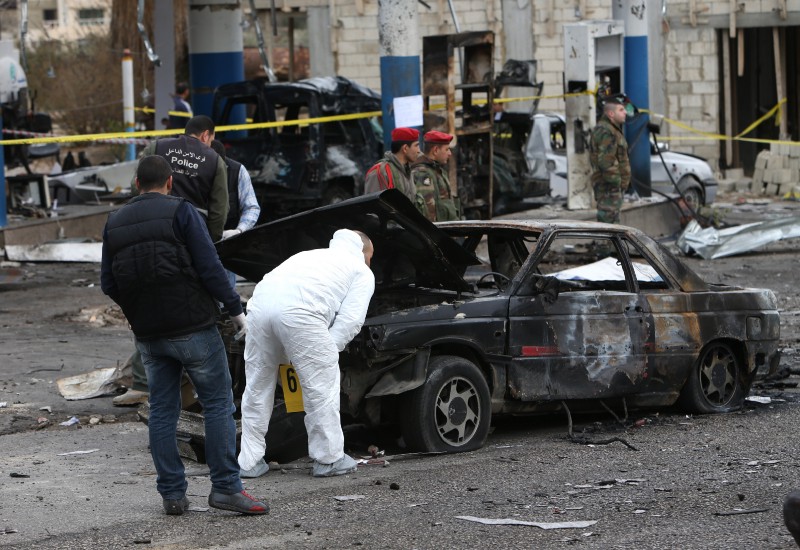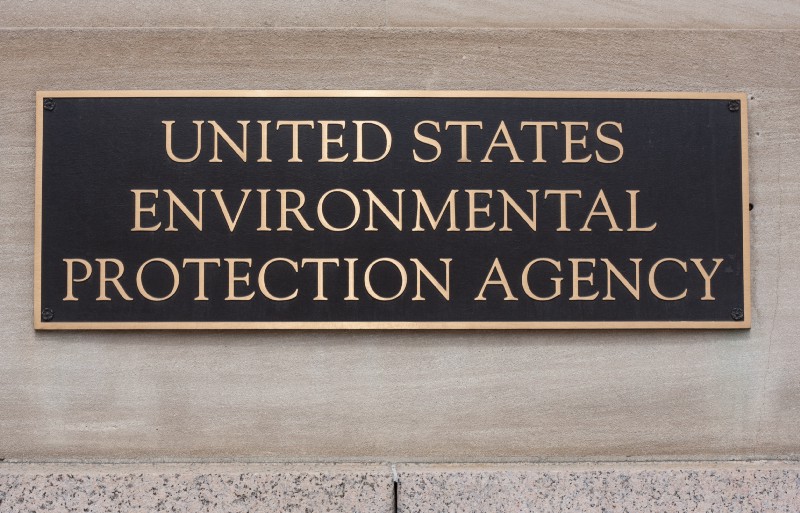People around the world say climate change is one of the greatest threats to national security.
While cyberattacks and the condition of the global economy are also points of stress, a survey from Pew Research Center published Tuesday indicates that climate change and ISIS are the two leading concerns for people across 38 countries.
Those surveyed were asked to weigh eight potential threats, including power and influence from the United States, Russia, and China, as well as an uptick in refugees from countries like Iraq and Syria. But those concerns paled in comparison to ongoing climate shifts and ISIS: 61 and 62 percent, respectively, of respondents felt those issues were pressing.
Which takes precedent — climate change or ISIS — differs starkly across regions and political persuasion.
Partisan divisions were clearly reflected by the survey. Those who consider themselves ideologically aligned with the political left in Europe and North America see climate change as a more pressing threat. By contrast, those who lean towards the right were more concerned about ISIS, as well as the number of refugees fleeing countries like Iraq and Syria.
That division is especially clear in the United States. U.S. respondents who identified as politically liberal overwhelmingly named climate change as a security concern, with 85 percent saying the issue is a priority, as opposed to 31 percent of those on the right — a 55 percent divide.
“The stark partisan divide between those on the left and the right means there is a large portion in the United States that doesn’t see climate change as a threat,” Jacob Poushter, a senior researcher at Pew, told the New York Times. “But there’s a large percentage that does, so that lowers the number.”
Climate change and ISIS have each disproportionately impacted certain areas over others, something reflected by the data.
“ISIS is named as the top threat in a total of 18 countries surveyed — mostly concentrated in Europe, the Middle East, Asia and the United States,” the survey notes. “A substantial number of these countries have endured deadly terrorist attacks claimed by the Islamic militant group. In 13 countries, mostly in Latin America and Africa, publics identify global climate change as the topmost threat.” This trend occurs on a national level as well. African countries like Kenya and Senegal are understandably worried about climate change.
But Latin American countries also overwhelmingly voiced concerned about the issue, with only Venezuela listing the global economy as a greater priority (Venezuela is currently in a state of political and economic crisis). While those nations are generally less susceptible to climate change than some regions, residents of Brazil, Chile, Colombia, and their neighbors overwhelmingly voiced concerns about the risk posed to national security.
That could be due to any number of factors, including exposure to extreme weather, such as the recent flooding in Colombia.
“In Latin America the impacts of climate change both in terms of extreme events as well as the intensity and frequency of events has really gained momentum,” Paula Caballero, global director of the climate change program at the World Resources Institute, told the Times.
Most countries citing climate change as a concern second to ISIS were based in Asia. Jordan, Lebanon, and Tunisia all disproportionately named the extremist group as a security threat, a concern likely influenced by ongoing attacks and violence in the Middle East and North Africa. Still, much like other regions, climate change still came in a close second for many Asian nations. Others were more concerned with different regional dynamics — China’s influence concerns South Koreans, while Japan is alarmed by cyberattacks.
Cyberattacks also ruled the day in the United States, coming in second only to ISIS. Only 56 percent of U.S. respondents said climate change was a major threat to national security. That could be a reflection on contemporary politics. President Donald Trump has notably withdrawn the United States from the Paris climate agreement, while making efforts to revive the country’s dying coal industry. At the same time, cybersecurity has become a more pressing concern for Americans, amid ongoing news coverage of Russian hacking efforts during the 2016 presidential election.
While virtually all countries surveyed expressed alarm over climate change, coal and oil exporting nations sounded a more muted note than their counterparts.
While virtually all countries surveyed expressed alarm over climate change, coal and oil exporting nations sounded a more muted note than their counterparts. Despite pressing climate concerns in Asia, the issue came in second for India and third for Indonesia, where coal reigns.
In oil giant Russia, meanwhile, climate change barely seemed to register, despite the nation’s support for the Paris agreement. Russians ranked climate change the fifth biggest threat to national security — after ISIS, the economy, refugees, and the influence of the United States.



